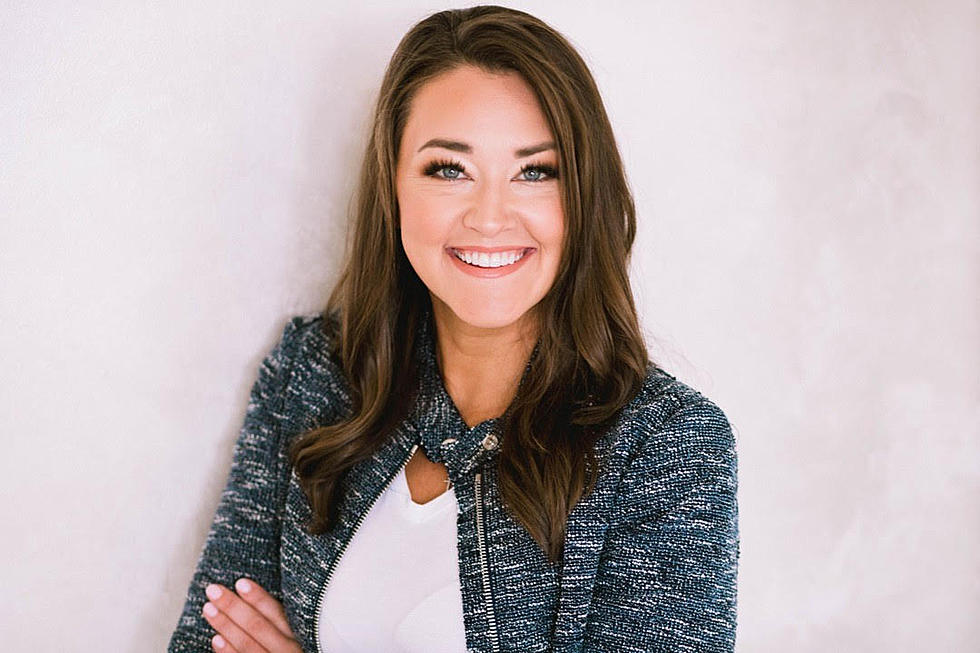
Mattie Jackson Selecman on Little Funerals, Paper Roses + the ‘W’ Word
A day came in October of 2021 that Mattie Jackson Selecman had dreaded each year for each of the previous three years. Her wedding anniversary should have been a celebration, but it wasn't for so long. Then, quietly, it was again.
Oct. 7 is Selecman's wedding anniversary to Ben Selecman, who died near Palm Beach, Fla., on Sept. 12, 2018, after slipping on metal steps and falling backward onto a concrete boat dock. She is the oldest daughter of country legend Alan Jackson, so the news was quickly circulated, but until recently, few knew the depths of her grief and how she's emerging from it. It's a process, Selecman tells Taste of Country. It's a process that involves many little funerals, long after the big one.
The idea of "Little Funerals" — saying goodbye to people, places and things after saying good bye to a loved one — is a vital concept to Chapter 8 of her new book Lemons on Friday, released Friday (Nov. 19) via Harper Collins. The first five chapters of the book detail the tragedy, her emotions through the recovery and little gestures that helped and hurt. The word "widow" is an example of the latter.
"It took months for me to say the word out loud," she writes during the pivotal Chapter 6, "A Better Name."
"I hated the sound of it. I hated the uncomfortable, pitying look it brought to people's faces when they heard it. I hated that it made me feel like a victim of something that would never change. It felt unerasable."
Those who've experienced something similar will find themselves in these pages, even if — as she acknowledges — no two stories of losing a spouse are similar. Her faith and most noticeably her questions for and of God are weaved through nearly every page. Favorite Bible verses are frequent, even if just in context. She's learned what unfiltered faith means.
"Father, I still don’t understand why you’d give me the desire of my heart and take it away," she asks, describing what surrendering a marriage to Ben and longing to marry again looks like.
But I am forever thankful for the gift of Ben and his love. I’m thankful for the time you did give me with him. But you also know how much I long to have great love again. You know more than anything I want to raise children to love you and walk with you. You know I want all of these things, and like the persistent widow (Luke 18:1–8), I’ll never stop asking you for them. But I want them in your way, in your will, in your timing. I trust you. I give them to you. Thank you for sowing more trust and patience and contentment in me as I wait.
“This isn’t just about me and my broken heart," Selecman says, five days after what would have been her fourth wedding anniversary. "It’s about people being able to heal back from their own heartbreaks because they get to see a little bit into mine."
Before, this time of year so pocketed with memories of her true love (his birthday, the anniversary of his death, their wedding date and the holidays) would be emotionally crippling. It's something she addresses during Chapter 5: "Clutching Paper Roses: Does Time Really Heal?"
"I just remember feeling, especially at first, I didn’t want that to be true because I didn’t want to have to wait for years and years of just devastation on all those special days — over and over again — to start to feel a little more stable," Selecman says. "Even in just the three years since then, I can see now that as much as we want to race through the tragedies of our life, it truly is just enduring one day at a time."
The idea of "Paper Roses" is literal. After Selecman returned home from the hospital, she came across a package sent to the couple's home months earlier that she was told not to open. On Oct. 7, 2018, she opened it to find a bouquet of paper roses made from hymnal pages, ordered to celebrate their "paper anniversary." That morning she sat clutching the bouquet and sobbed as she re-watched their wedding video. It's a tradition she still keeps today. Time may not heal, but for Selecman, it's softened the edges of pain. It made this year's anniversary less tragic.
"It’s still tender, and you still cry, but it’s more tears of celebrating what we had than total sorrow for what is gone," she says.
Lemons on Friday is remarkable generous with details, and in those details, Selecman not only helps the griever but someone unsure of how to help those in grief. As she pivots toward hope and moving forward personally, she's dropping bread crumbs for those needing to find unfamiliar empathy. Writing Chapter 6 was the hardest part, she shares. It's here that comes face to face with how much of her identity was wrapped up in concepts of "wife" and (in time) mother.
"I had to go on living in this world where the majority of the people around me were living in the roles I thought I had that were gone," she shares. "(Friends) were basically at the starting line of this life as a wife and a mom that I wanted to be running with them. I felt like I was sitting on the sideline of a race that I wasn’t invited to anymore."
Adding "author" to her identity is helping. Selecman was full of energy during a 30-minute phone call, and admits that talking about her story has been very rewarding. She's taken vital steps forward, like dating again and selling the house she and Ben had bought. The conversations she's had with others going through something similar is surreal, a sign of progress. It also may be a sign of God's hand at work. Her philanthropic women's apparel company NaSHEville was founded two months before Ben died. The goal was to support orphans, victims of human trafficking and widows.
"It feels like what I’ve asked from God from the beginning of this is that there will be purpose from all this pain and that there will be a means of continuing to help others through their pain as well.”
To support the release of Lemons on Friday, Alan Jackson recorded a song called "Racing the Dark," co-written with Mattie Jackson Selecman.
R.I.P. — 17 Country Singers and Songwriters Who Died Too Soon
More From Taste of Country




![See Inside 15 Country Singers’ Most Spectacular Southern-Style Homes [Pictures]](http://townsquare.media/site/204/files/2020/10/attachment-country-singers-southern-homes-pictures.jpg?w=980&q=75)



![See Inside 11 Country Stars’ Most Unusual Homes [Pictures]](http://townsquare.media/site/204/files/2024/02/attachment-unusual-country-singers-homes.jpg?w=980&q=75)
